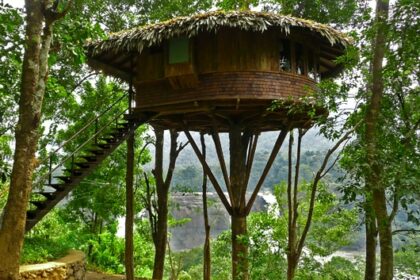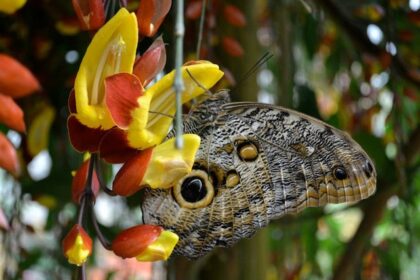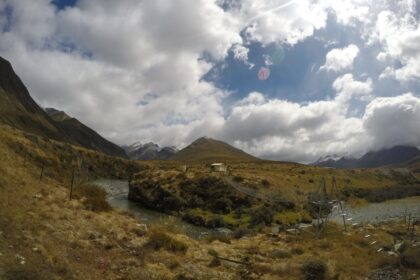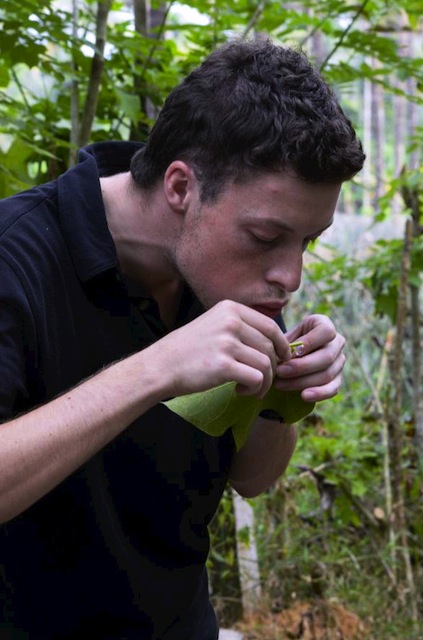
“The Western Ghats are a very important place in India. It’s home to the richest bird life on the Indian Peninsula as well as thousands of Ayurvedic plants.”
I’m at the Hornbill Camp, taking a tour of the onsite organic plantation with Chris and John, two interns from England. Kerala is renowned for its natural beauty and diverse ecology — which is why its tagline is “God’s Own Country” — and the property is lush with sweet fruits, earthy nuts and Ayurvedic ingredients: bone-strengthening pineapple; cancer-fighting jack fruit; fiber-rich tapioca; heart-healthy chilies; turmeric with its antiseptic properties; nutmeg which helps upset stomach; clove which aids tooth aches; coffee cherries whose skins are full of antioxidants; and much more.
“Try this,” says Chris, handing me a tiny chilli. I catch a mischievous glint in his eyes. “It’s one of the more milder peppers.”
I catch his bluff. “Okay. But you first.”
He glances quickly at John, and plops the pepper on his tongue, immediately choking and turning red.
“Looks mild alright,” I smirk, punching him playfully in the arm.
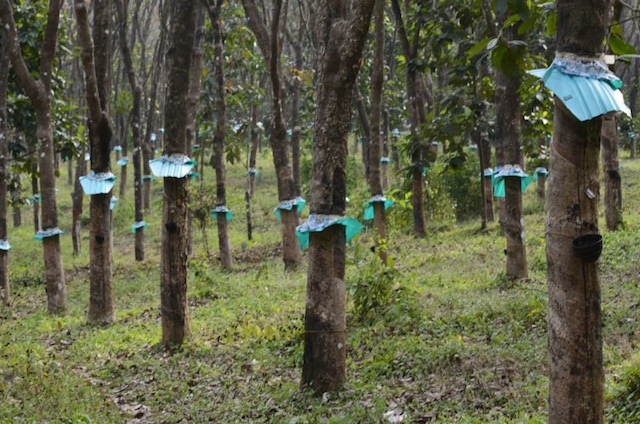
The plantation’s main crop is rubber, and you can tell which trees make the product from the plastic visors worn on their trunks. This is to protect already tapped areas from getting wet and infected with fungus. What’s really interesting is seeing how with one small cut liquified rubber runs down grooves chiseled into the trunk, dripping into a bucket stretching like puddy once it congeals. Afterward, we stop by the small onsite factory, where the rubber is turned into thin sheets that are sold to manufacturers.
After the walk, it’s time to immerse myself in Kerala’s rich biodiversity through a bird-watching kayaking adventure in the Thattekkad Bird Sanctuary. The camp sits on the Periyar River, the longest river in Kerala at 244 kilometers (152 miles). Here you’ll find over 260 bird species, 24 of which are endemic, like the Malabar Grey Hornbill, White-bellied Treepie and Nilgiri Flycatcher, as well as rare species like the Mottled Wood Owl, Rusty-tailed Flycatcher, Grey-headed Bulbul and Nilgiri Wood Pigeon.
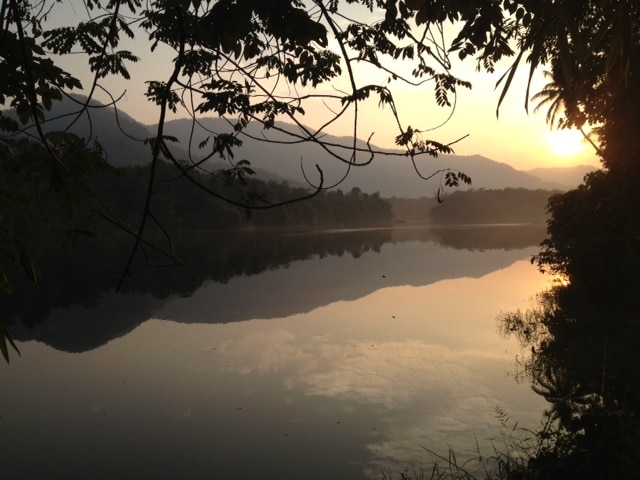
The water of the river is still and serene, bordered by lowland tropical forest. Immediately we see birds flying from every direction — Dollarbirds, Snakebirds, Cormorants, Parakeets, Indian Cuckoos and even an enormous squirrel that looks more like a monkey called a Malabar Giant Squirrel. On the way home, more “animal life” is spotted as a local man paddles with his dog in a wooden canoe.
The bed in my cottage tent, which is crafted from local materials, is a welcomed sight after so much activity — especially as I had ridden a bike 60 kilometers (37 miles) from Kochi to get there. I fall face first on the cushy mattress. Not for too long though, as 7:30pm is dinner time.
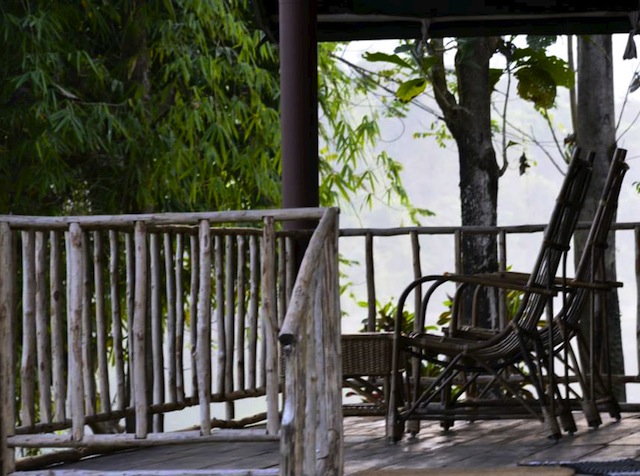
Meals at the Hornbill Camp are done in traditional Kerala style, with ingredients sourced locally, many from the property. A creamy vegetable soup is the starter, followed by an aromatic buffet of vegetable korma, aloo gobi, chicken curry, ash gourd and tasty vegetable snake gourd. With each bite the spices and herbs I’d seen both on the property and cycling through Kerala come to life: the cashew and clove in the korma; the coriander and turmeric in the aloo gobi; the ginger root and cumin in the curry; and the coconut and dahl in the gourds. For dessert, a cardamom-spiced tapioca pudding showcases India’s “Queen of Spices,” which is not only sweet but excellent for healthy teeth and digestion. Sipping water from a mug hand-carved from local wood, I feel truly immersed in Kerala culture.
That night — after a refreshing shower using India‘s famous Ayuverdic soap — I go to bed hearing nothing but the sounds of Jerdon’s Nightjars and Ceylon Frogmouths. Unlike my apartment in Brooklyn, there’s no WiFi, subways, gangster rap or fighting street kids to distract me from a restful sleep. And while I usually toss and turn fretting over deadlines, bills and parking tickets, on this night not a thought crosses my mind. Not surprisingly, I sleep better than I have in ages.
Jessica Festa
Latest posts by Jessica Festa (see all)
- A Culturally-Immersive Adventure In Mongolia’s Altai Mountains - Jul 8, 2023
- This Recipe Sharing Platform Supports Women In The Culinary Industry (Labneh Recipe Included!) - Nov 5, 2020
- Hiking The Mohare Danda Community Eco-Trek In Nepal - Jun 3, 2020
- 6 Important Questions For Choosing A Responsible Yoga Retreat - May 18, 2020
- How To Create & Grow A Profitable Blogging Business (Ethically) - Jan 18, 2020

